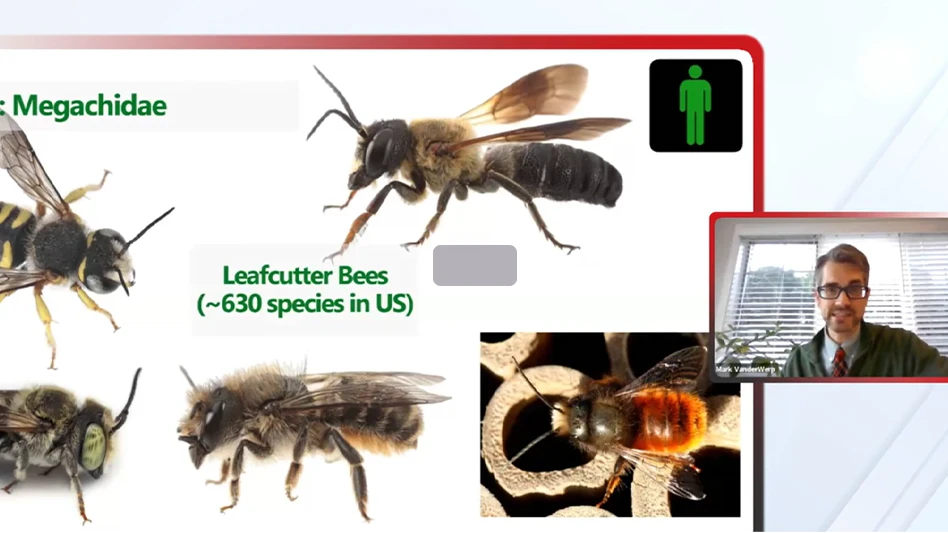Long Live the Queen!
The object of the “board” game Hive seems simple enough: To capture your opponent’s queen bee by completely surrounding it with the other insect-themed game pieces. But looking over the rules and various strategies, it becomes clear Hive is a game that requires a great deal of calculated thought and is certain to entertain (or frustrate) you for hours.
The two-person strategy game consists of 22 hexagonal pieces, each representing a different insect. Although it does not require a vast knowledge of the biology and habits of different insect species (to the relief of those players NOT in the pest control industry), Hive does require the player to know how each piece can move.
The insect pictured on each piece dictates how that piece can travel across the layout, with beetles being able to climb, spiders being able to move into holding positions, grasshoppers being able to jump, and ants being able to move anywhere around the perimeter of the layout.
In addition, players are challenged to not only pay attention to offensive strategies, by trying to capture their opponent’s queen bee, but also to defensive strategies, as they attempt to protect their own queen.
The beauty of Hive is that it requires no real board to play on, and instead can be easily transported and played on virtually any flat surface. This small fact means that Hive is significantly easier to set up than Mouse Trap, another pest-themed game that takes more time to assemble than it does to actually play, undeniably making Hive the preferred entertainment choice for any pest control professional.
Enter to win a copy of Hive at www.pctonline.com/extra. And don’t say you don’t ever get anything from The PCT Media Group!
— Hallie Moreland, Contributor
*****
Don’t ‘BEE’ on Cocaine, Researchers Say
In a recent study, it was found that honey bees, much like humans, tend to exaggerate when on cocaine, bringing us all one step closer to the insect world.
It was even discovered that honey bees tend to dance more when on cocaine, though not to raging club music, while holding a cocktail, like human drug users tend to do.
The honey bee dance occurs when foraging honey bees need to alert their hive mates of high quality pollen or nectar when the hive is in need. Their dance is called a “round” or “waggle” dance and is incredibly complex, unlike the “robot,” which is a human favorite. But like humans, their dance does actually take place on a designated dance floor within the hive.
After taking an interest in the waggle dance, Gene Robinson, a University of Illinois entomology and neuroscience professor, decided to study what effect the neurochemical octopamine might have on a honey bee’s movement.
It was discovered that when treated with octopamine, honey bees accept a lower quality of food and also dance more often. Their dancing revealed that insects can be altruistic by wanting to share the food they find with others. In the human brain, performing an altruistic act excites the pleasure centers, which could potentially mean honey bees feel that same excitement in their own brains.
This led researchers to look at the effect cocaine might have on honey bees, as it is known to interfere with octopamine and to affect reward systems in many mammals. After being treated with cocaine, the honey bees danced more — altruistic behavior — which means that insects might have a reward system in their brains, something never before discovered.
Researchers also found that, like humans, honey bees can experience withdrawal symptoms, meaning that they are just as amusing as humans on the dance floor and just as grumpy when they lack their illegal stimulants.
— Hallie Moreland, Contributor

Explore the October 2009 Issue
Check out more from this issue and find your next story to read.
Latest from Pest Control Technology
- Winter Insects are Cool
- Nancy Troyano on Pi Chi Omega's Jr. Entomology Program Bringing Applied Science to Youth
- Tick-Killing Fungus Research Underway at Nova Scotia University
- VAGA Hosts 8th Annual Veterans Thanksgiving Appreciation Dinner
- Happy Holidays from PCT Media Group!
- Rentokil Terminix Expanded in Key Markets with 2024 Acquisitions
- In Memoriam: Joe Cavender
- Certus Acquires Green Wave Pest Solutions





